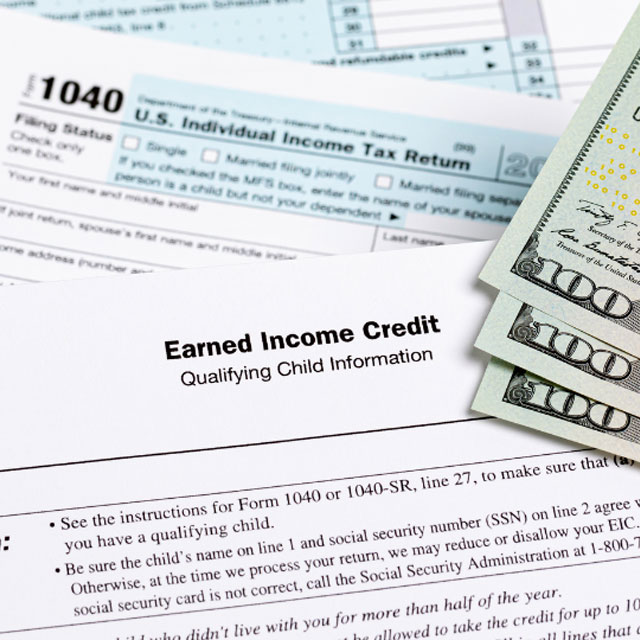Tax Credits vs. Tax Deductions: Maximize Your Refund & Lower Your Bill

“Does my child count as a tax deduction?”
Not exactly, but they might qualify you for a valuable tax credit instead!
Credits and deductions often get mixed up, and honestly, it's an easy mistake. Both can help you save money when filing your taxes, but they work in different ways.
Let's walk through the difference, share real examples, and help you understand how both can work together to lower what you owe or increase your refund.
What's the Difference Between a Tax Credit and a Tax Deduction?
- Tax deductions reduce your taxable income, meaning the amount of income the IRS uses to calculate what you owe.
- Tax credits directly reduce your tax bill, dollar for dollar.
For example:
If you owe $1,000 in taxes and claim a $500 tax credit, your tax bill drops to $500.
Examples of Common Tax Deductions
You may qualify for deductions if you:
- Paid student loan interest
- Took the standard deduction (most people do)
- Donated to a registered charity
- Contributed to a retirement account like a 401(k) or IRA
- Are self-employed and claimed eligible home office or business expenses
These reduce your taxable income, which can mean a smaller tax bill overall.
Examples of Valuable Tax Credits
Credits subtract directly from the amount of tax you owe. Some even give you money back even if you owe nothing; these are called refundable credits.
Here are a few common ones:
- Earned Income Tax Credit (EITC): Helps low to moderate income workers
- Child Tax Credit (CTC): For parents or legal guardians of qualifying children
- American Opportunity Credit: For higher education costs (like tuition and books)
- Saver's Credit: For low to moderate income earners contributing to retirement accounts
Can You Claim Both Tax Credits and Deductions?
Yes! Credits and deductions serve different purposes, and many taxpayers are eligible for both. In fact, using them together is one of the best ways to maximize your refund or lower what you owe.
Final Thoughts: Use Both to Your Advantage
If your goal is to pay less or get more back, then understanding how tax credits and deductions work is one of the smartest things you can do. Even knowing the basics can help you make confident filing decisions, whether you're filing solo with software like FileYourTaxes.com or using a tax prep service.
Frequently Asked Questions
Q1: What's the main difference between a tax credit and a tax deduction?
A: A tax deduction reduces your taxable income. A tax credit reduces the actual amount of tax you owe.
Q2: Which is better: a credit or a deduction?
A: It depends, but a tax credit typically offers more savings because it directly reduces your bill, while deductions only reduce your taxable income.
Q3: Can I claim both a tax credit and a deduction for the same expense?
A: Sometimes. For example, education expenses might qualify for a credit (like the American Opportunity Credit) or a deduction (like the Tuition and Fees Deduction), but you usually can't claim both for the same expense in the same year.
Q4: Are tax credits refundable?
A: Some are. Refundable credits like the Earned Income Tax Credit (EITC) can result in a refund even if you owe no taxes.
Q5: What's the easiest way to find out which credits and deductions I qualify for?
A: Use tax software or a filing service that walks you through eligibility questions. FileYourTaxes.com, for example, checks your info against common credits and deductions as you file.

